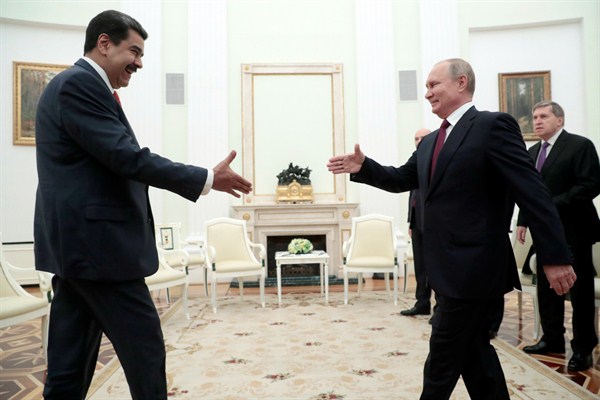When a wave of popular protests erupted across South America last year, a number of officials in the region claimed the unrest was being promoted by a “foreign hand.” No one argued that the protest movements, from Chile to Colombia, were created entirely or even ignited by outside powers, but leaders like Chilean President Sebastian Pinera suggested the possibility that someone outside the region was pouring fuel on the fire.
Now, analysts at the U.S. State Department say they have reviewed the evidence and found that Russia was engaging in an incendiary and divisive disinformation campaign in Latin America waged over social media—similar to Moscow’s political interference in the 2016 elections in the United States, and subsequent meddling in Europe and parts of Africa.
“We are noting a thumb on the scales,” Kevin O’Reilly, the deputy assistant secretary of state for Western Hemisphere affairs, told The New York Times. “It has made the normal dispute resolutions of a democratic society more contentious and more difficult.” The State Department concluded with high certainty that Russia launched a major influence campaign aimed at intensifying dissent during protests last year in Ecuador, Peru, Bolivia, Colombia and Chile.

